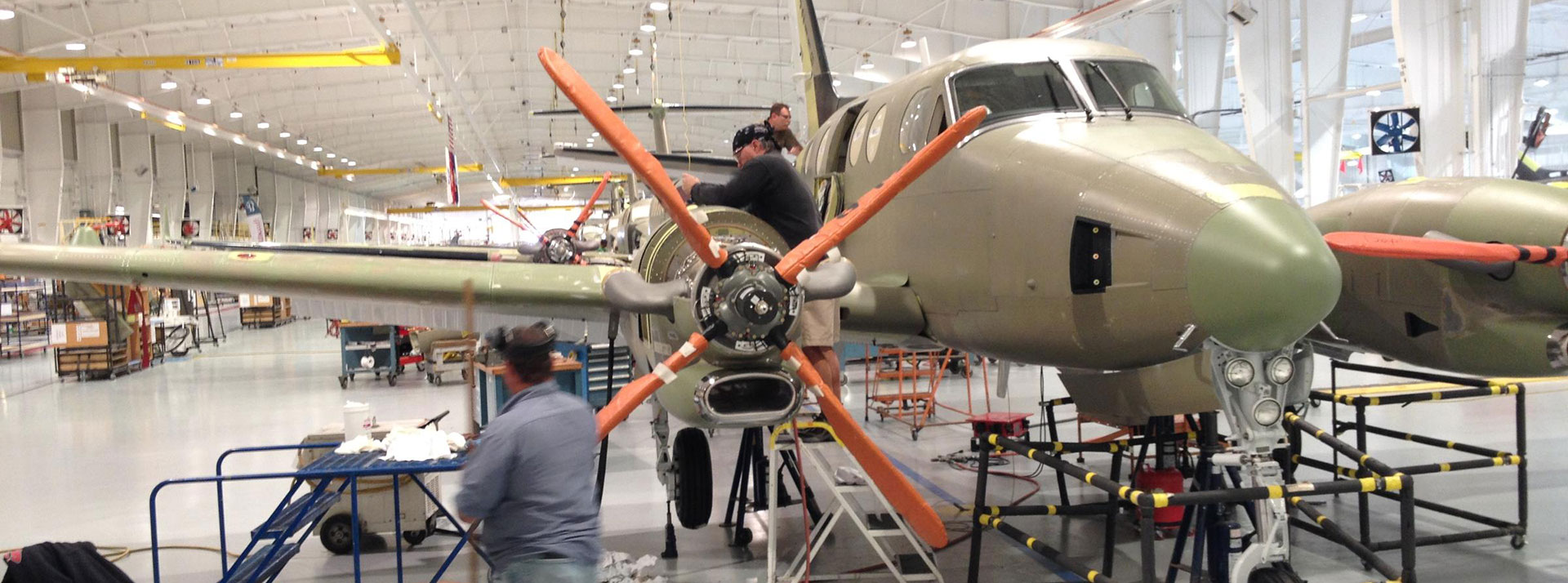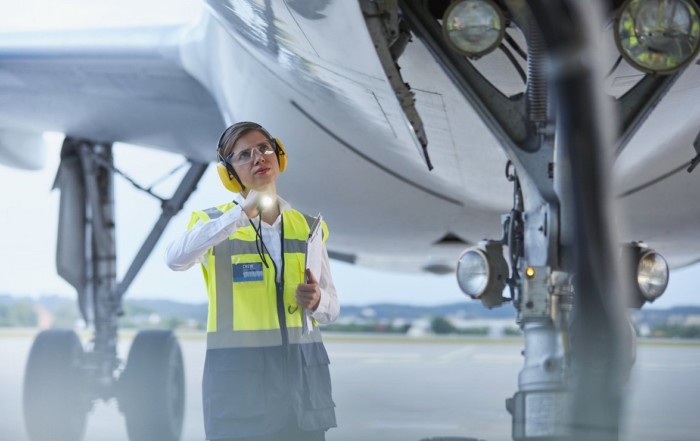




Plastic materials play an important role in the aviation sector and are widely used because of their technical advantages and weight advantages. Plastic materials used in a wide variety of forms, including polymers, laminates and flame retardant materials, have significantly contributed to the innovative state of the aviation industry in design.

Therefore, the AS 9100 Quality Management System standard in the aerospace and aerospace industry, which is a special quality standard for the aerospace and aerospace sectors, is of paramount importance in ensuring safety, reliability and trust throughout the supply chain for this valuable and rapidly expanding sector.
The AS 9100 range of standards complies with the ISO 9001 Quality Management System standard and focuses more on safety, reliability and regulatory compliance.
AS 9100 standards have been developed by the International Quality Group Aerospace Industry with the efforts of American and European aviation engineers. The International Standards Organization (ISO) also participated in this work. Today, all major aerospace, aerospace, equipment and materials manufacturers and suppliers in the world have to comply with AS 9100 series standards in order to compete and prove their quality.
In Turkey, these standards have been published by the Turkish Standards Institute under the following headings:
TS EN 9104-001 Aviation series - Quality management systems - Part 001: Specification for air, space and defense quality management system certification programs
TS EN 9104-002 Space and Aerospace series - Quality management systems - Part 002: Aviation quality management system certification / supervision programs oversight rules
TS EN 9104-003 Aviation series - Quality management systems - Part 003: Rules for the Aviation Quality Management System - Auditor training and qualification
AS 9100 standards are in fact the result of insufficient previous standards applied to the aviation industry, including the US Department of Defense standards MIL-Q-9858A and MIL-I-45208A. In the early 1990 years, Boeing, McDonnell Douglas and other major aviation companies designed this aviation application to address the shortcomings of the ISO 9001 standard. AS 9000, the quality standard for the airline industry, was first launched in 1997.
Failure to observe details or errors in aerospace studies has fatal consequences. For this reason, quality and reliability are very important for the aviation industry.
In general, quality management systems help reduce risks, ensure consistency in operations, and provide a reliable framework for the entire supply chain.
As in any sector, communication is very important in this sector, and the AS 9100 range of standards takes into account many aspects, from the introduction of engineering requirements to the management of necessary measurements, tests and analyzes, and even the right of access to the facilities of suppliers.
These standards, like other ISO management systems, follow the cycle of plan, implement, control and take action.
Businesses with AS 9100 Certification mainly benefit from the following benefits:
High-quality products are achieved and maintained
Customer demands and expectations are met on time and customer satisfaction is created.
Operational efficiency increases as processes are continuously monitored and improvements are made
Increased product safety and reliability
Business profitability increases
The competitiveness of the company increases in foreign markets
Many time-consuming and auditing activities are eliminated and the business is standardized for external audits.
AS 9100 series of standards assists manufacturers and suppliers in various ways. This standard is based on existing management systems and industry best practices. It therefore naturally supports international legal requirements. As with other ISO standards, AS 9100 standards have a planning structure with intermediate control points and require continuous improvement.
AS 9100 Quality Management System in Space and Aerospace Industry can be installed and applied alone in enterprises. Since it is an auditable standard, third party certification bodies may audit the enterprises and, if deemed appropriate, give them an AS 9100 Certificate. If this certificate is issued by an accredited body, it is valid and accepted internationally.
If the ISO 9001 Quality Management System is installed in aerospace and aerospace vehicles and equipment manufacturers, it becomes much easier to establish and implement the AS 9100 Quality Management System in the Aerospace and Aerospace Industry.
In the aviation sector, there are many legal regulations that require the safety and reliability of equipment and materials. Therefore, there is confidence in the supplier companies that implement effective management systems in the sector. In this regard, AS 9100 standards determine the expected quality levels in all aviation fields, from the aviation to the defense industry. AS 9100 standards are required for businesses in this sector, from design and production to maintenance and distribution.
The aerospace industry demands the best product output, including process and service quality. The AS 9100 standard provides assurance on safety, airworthiness and product suitability and reliability.
AS 9100 Quality Management System in the Aerospace Industry has been developed to achieve the following main objectives:
Reduce errors and defects in the supplier chain
Lower operating costs
Continuous quality production
To increase customer satisfaction, and
To save labor, time and money for quality production and to meet different customer requirements with a single standard acceptable to everyone
The main features of AS 9100 standards are as follows:
Improving product quality
Change control management for key product features
Providing specific production and services in the aviation industry such as parts responsibility, foreign object detection, production documentation, part identification and part traceability
Process and tool change control and management
Supply chain quality control including control of procurement and acceptance processes
Design and development control
Product configuration control management
Control of product quality, reliability and safety, and
Continuous improvement
AS 9100 Quality Management System in the Aerospace Industry includes additional provisions to meet the standard requirements of the civil and military aviation industry more broadly. It therefore covers the needs of all suppliers, regulatory authorities and customers in the aviation industry. It therefore constitutes a global benchmark for the aerospace sector.
First, it is determined whether the organization meets the mandatory requirements of the standard and whether to proceed to the next stage.
It is checked whether necessary procedures and audits have been developed and your institution's readiness for evaluation is reviewed.
The findings that arise in the first two stages are evaluated and after all corrective actions are reviewed, document preparation is started.
To get an appointment, to get more detailed information or to request an evaluation, you can ask us to fill in our form and reach you.